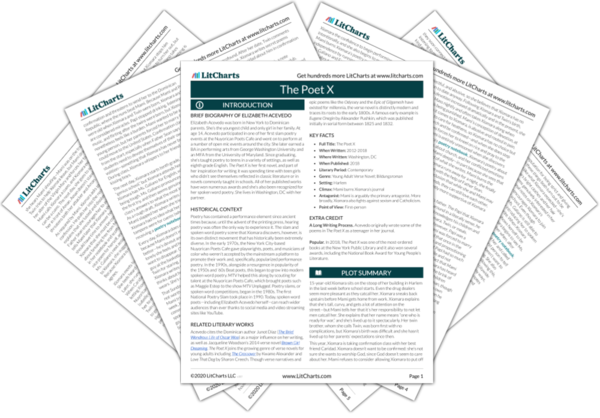When Xiomara notes that Twin is looking at the players just like she is, it opens up the possibility that Xiomara knows on some level that Twin is gay, but isn’t yet willing to say anything to him about it. The insult that Xiomara throws at the boy who challenges her and Twin shows that she has a way with language and already has a firm grasp of how to use it to get what she wants—but at this point, she has to use it in a defensive way, rather than speaking for the sake of expressing herself. Spoken language, at this point, has a very specific purpose for her.
